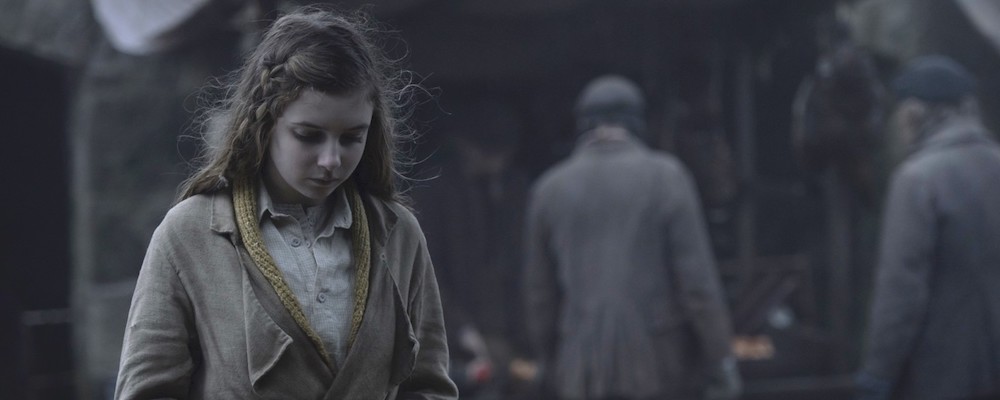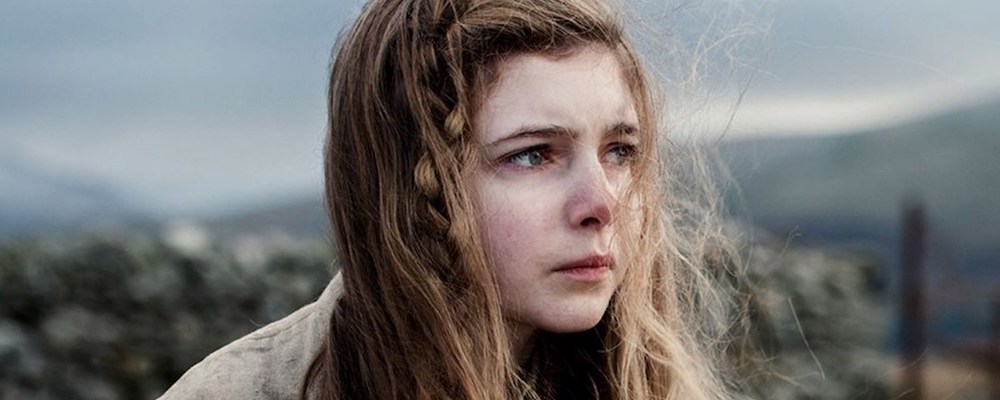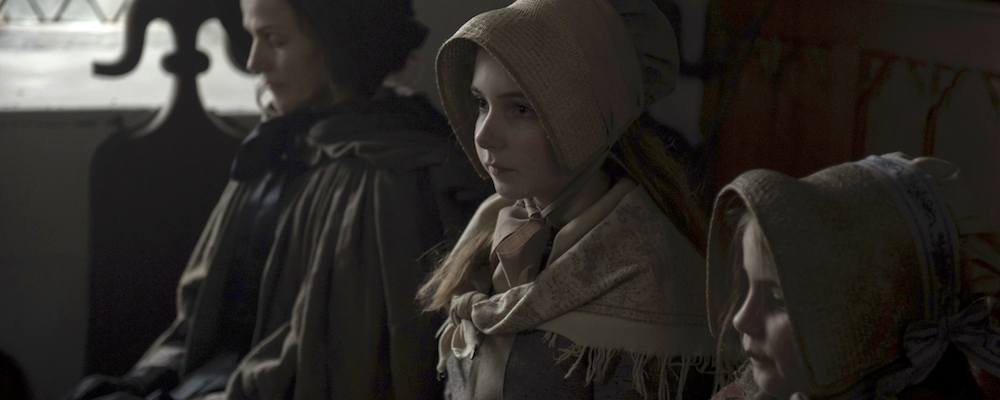Dark Period Drama ‘Gwen’ Tells a Timeless Fable About Patriarchy and Politics
Harker Jones
The latest film from director William McGregor, “Gwen,” is a gothic folktale that takes place in Snowdonia, North Wales in 1855, just after the close of the Industrial Revolution. This Welsh period drama, drenched in dark horror, is a solid successor to 2015’s “The Witch.” Both films involve families who live hardscrabble lives in unforgiving worlds and who rely on a teenage daughter to take on responsibility that is beyond her years.
That teenage daughter is Gwen (Eleanor Worthington-Cox), who lives with her mother, Elen (Maxine Peake), and younger sister, Mari (newcomer Jodie Innes), on the blustery and rocky moors, tending sheep and selling vegetables in the town market. Gwen’s father has not yet returned from the war, so they subsist the best they can, even though they’re isolated from the nearest town — especially when their only neighbors suddenly die of cholera. When tragedy befalls her own family, Gwen steps up to face what appears to be supernatural forces.
McGregor delivers a film with an overwhelming sense of dread, of impending horror, as Gwen navigates the social mores and political waters of her time and her town. Worthington-Cox gives a complex performance, her expressive face and deep eyes relaying everything. She has a sense of somber resignation to her station in life, including her feelings for Harri (Gwion Glyn), a boy in town who has clearly taken a shine to her but whose father won’t allow them to interact.
“Gwen” doesn’t offer up horror in the traditional sense. Spooky things happen but the intent doesn’t seem to be to truly scare audiences so much as to tell a story that lingers with them afterward. It’s very quiet and takes its time with the storytelling, which does not mean it is slow. Much of its effect is achieved through atmosphere. The cinematography and art design are quite stunning with lots of muted greys and browns and greens. Everything looks authentic, from the sets to the costumes to the actors, who have drawn faces, as grey as their environment. The sound is so crisp and so clear you can practically feel the waves of the cold ocean and the battering winds of storms.
Worthington-Cox tells us that despite the adversity of filming in such a windswept environment, her performance was informed by “working with a very freeing director who said run with it and see what happens.”
Instead of watching other horror films to get a sense of the genre and the process, she thought a film like this, unique in its approach, would be underserved if she over-thought it. “I would not be doing justice to the script, because it’s so refreshing to see something that does not conform to a genre particularly. We take elements from so many different forms of filmmaking that I felt if I did immerse myself in the horror genre and started watching 20 films in that area of filmmaking that I wouldn’t be bringing the freshness that the film needed to do it justice.”
McGregor’s script is spare and ambiguous. Is there some dark magic around Gwen and her family? Have men from the quarry cursed them? Are they attempting to scare them? All because they want their land? Worthington-Cox, who won the Olivier Award at age 10 for the lead role in “Matilda the Musical,” told us, “Is this the horrors of men and a community preying on a family’s vulnerability or is there something supernatural at play? It is this young woman who is growing up in a hostile community and who is completely isolated, so if you have that level of isolation on the farm, a fox screaming in the night… You can imagine what’s going through a young woman’s head at that time, especially if she’s got the fear of God instilled in her by the community, and the fear of losing her family, and being alone, essentially, on a hillside. That’s terrifying… Are these supernatural elements or are these man-made atrocities?”
Their world is a cold place in many ways. Literally. Worthington-Cox told Entertainment Voice, “We had days where it was three in the morning and we had blizzards pelting into our faces with barely any protection. I was in a nightdress with a lantern… It puts you in that character’s head. It puts you in that mindset. If you’re literally going through what that young woman would have experienced you can’t help but feel connected.”
Gwen’s story has much to say about how women are treated when they’re strong and independent, whether through circumstance or by choice. The men are threatened by the fact that Elen and Gwen are making do — or, worse, think they always know best, adding stress to an already bleak life.
Veteran actress Peake gives a wrenching and layered performance as her Elen slowly disintegrates under the pressures of farm life and a secret she harbors. But Worthington-Cox has a star-making role, which she inhabits naturally and fully. She tells Entertainment Voice, “[Gwen] is such a complex role… It’s a shame that we can draw some similarities and comparisons to a young woman who’s living in the 1800s to now, but if she is able to speak up in a patriarchal community and actually try and help her family and face these adverse and complicated situations, then hopefully that was something I brought to the role.”
“Gwen” is a chilling indictment of society steeped in superstition. Whether the women are being haunted by monsters or men almost doesn’t matter because in the long run, there isn’t much difference. And with its themes resonating with today’s social and political climates, the film is a horror tale for the ages.
“Gwen” releases Aug. 16 in select theaters and on VOD.



